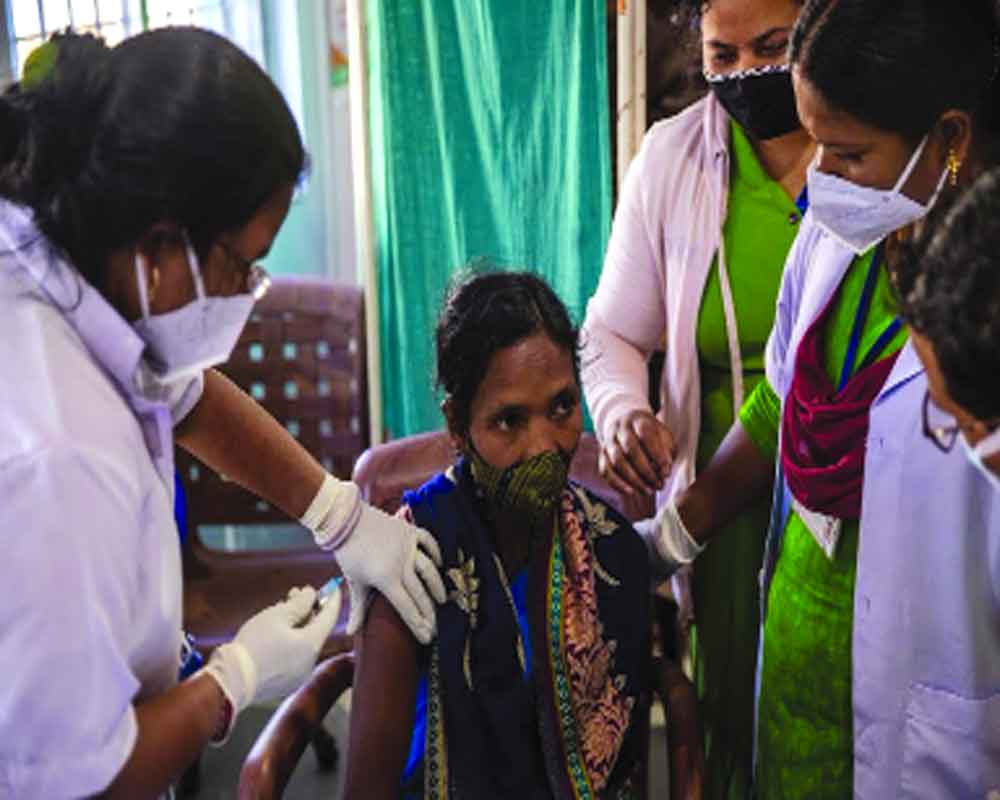From Ballia in Uttar Pradesh to Nuh in Haryana, from Sampat Chak in Bihar to even Manjhawali in Faridabad, close to Delhi, the Covid-19 vaccination drive in India’s rural areas has taken a hit as the fear of an adverse reaction, superstition, and a lack of information and awareness have made villagers either hesitant or completely unwilling to take the jab.
In fact, there have even been reports that vaccination centres have been destroyed and health workers beaten up in various part of the country.
Villagers of Manjhawli in Faridabad damaged the vaccination centres at Gurukul school and beat up health workers a few days ago. The health workers were going to this village to disseminate information for Covid vaccinations. In another case in Nuh, Haryana, villagers threatened to beat health workers if they insisted for vaccination.
Besides the shortage of vaccines, the vaccination process slowed down in this district as the majority of people think the jab could cause infertility. Health workers are facing an uphill task to convince them for inoculation.
In Bihar, most of the vaccination centres are far away from the villages. For instance, vaccination centres for Bahuara, Kandap, Sohgi villages are set up in Sampat Chak, which is five kilometres away from these villages. Most of the villagers are hesitant to walk and get a jab.
“Even if counselled, villagers are unable to travel 17-20 km to the nearest centre just for vaccination. And if they eventually do reach, the internet is too slow and it takes hours to register and verify online,” said in-charge of vaccination centre, Sampat Chak.
“In Ballia’s Basdih Road vaccination centre in UP, there are over 20,000 population in five villages but only 800-1000 turned up for vaccination so far,” said a health worker on the condition of anonymity.
The Pilana vaccination centre in Baghpat in Western UP witnessed a similar scenario. “There are about 200 houses with 1,500-2,000 people. Of this, about 500 people are aged above 50, but the coverage in the past month would just be a third of the target group,” said an anganwadi worker who goes door-to-door explaining to villagers about the vaccine and the need for it.
The story is similar in rural areas of Varanasi, Baghpat, Aligarh, Agra, Gorakhpur and Rampur in UP. Reports said a sizeable share of the population is reluctant to take the jab due to fear of the viral infection and side effects of post-vaccination.
“Fear of hospitalisation, loss of daily wages and inability to reach faraway vaccination centres were some factors the villagers cited, officials of union health ministry said adding that the story is similar in southern States.
“Scepticism about the safety and efficacy of Covid-19 shots is high in India, particularly in rural areas and misinformation via social media platforms and word-of-mouth have preventing many to take shots,” an official of UP health department has been quoted as having said. .
Interestingly, in tribal areas, Covid vaccine hesitancy is high due to superstitions among Adivasi communities as there is a strong perception that one has to avoid liquor for a few days before and after vaccination. Besides, another superstition is that they will get fever if vaccinated.


























